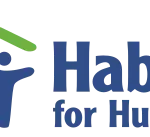
Habitat for Humanity
Location: Kenya
CONSULTANCY FOR DEVELOPMENT OF AN ADVOCACY STRATEGY FOR HABITAT FOR HUMANITY KENYA.
1.INTRODUCTION
1.1 Habitat for Humanity Kenya.
Habitat for Humanity (HFH) Kenya, established in 1982, is a non-governmental organization and one of the 70 country affiliates of Habitat for Humanity International (HFHI), a nonprofit housing organization that helps low-income people around the world access decent housing. Our primary objective is to facilitate access to decent and affordable shelter for low-income families. Over the past 40 years, HFH Kenya have supported more than 500,000 families across 13 counties through various interventions touching on community led development, financial inclusion and disaster risk and reduction programs. We are currently operating in Nairobi, Laikipia, Homabay, Kisumu, Tana River and Machakos.
HFH Kenya follows a systems model building approach which analyses opportunities and barriers to affordable housing and visualize key linkages and causal connections between elements of the Kenya housing system. The systems thinking approach, internally referred to as Integrated Systems Approach to Incremental Housing Processes (ISA2IHP), considers housing as a long-term, incremental process, which builds on cross-sectorial interventions such as water, sanitation, energy access, land, policy change and construction at different levels of governance, actors and territories.
1.2 Rationale of the Assignment.
Our Global Impact Initiative 2025 (GI25) seeks to triple our impact and scale to meaningfully address the housing deficit. HFH Kenya is driven by a singular goal of increasing the availability of affordable housing in the country, thereby ensuring that more families have access to safe and adequate shelter. In Kenya, Habitat for Humanity Kenya emphasizes that advocacy is essential for promoting homeownership and developing equitable and accessible shelter options. This is accomplished through influencing policies, mobilizing resources, and fostering partnerships and stakeholder engagements.
Habitat for Humanity Kenya holds a firm belief in the importance of meticulous planning to effectively drive advocacy initiatives forward. This entails engaging stakeholders, defining clear goals and objectives, and monitoring and evaluating impact. In line with this commitment, the organization is actively pursuing the development of an advocacy strategy. This strategy will serve as a comprehensive guide for the implementation of advocacy-related initiatives, ensuring coherence, accountability, and maximum effectiveness in advancing its mission.
1.3 About the Assignment.
HFH Kenya is currently implementing several advocacy related initiatives and with focus is the “Home Equals Campaign Project” a global advocacy initiative aimed at achieving policy change to ensure equitable access to adequate, decent, and affordable housing, basic services for those living in informal settlements and secure land tenure. Home Equals campaign seeks to promote empowered participation by stakeholders, create awareness on adequate housing and land rights, and influence policy changes at levels of governance.
It is in this regard that HFH Kenya intends to develop an advocacy Strategy that outlines the approaches/plan on how an advocacy initiative is carried out effectively aiming at achieving specific policy changes or goals.
1.4 Main Objective
The objective of this consultancy is to develop an advocacy strategy for Habitat for Humanity Kenya that aligns with Habitat for Humanity International’s advocacy priorities, integrates with Habitat for Humanity Kenya’s logical framework, and follows the SMART Advocacy Cycle/path. Additionally, the strategy will incorporate a monitoring and evaluation framework that includes real-time output monitoring indicators and an outcome evaluation mechanism to track progress and ensure effective implementation. It should also include a social accountability path for the advocacy process.
Specific Objectives.
- Review current projects, as well as advocacy initiatives and identify potential priorities and areas of focus.
- Organize a one-day workshop to consult with staff and identify priority areas for advocacy over the next four years. The workshop will rely on participatory methods, including brainstorming session.
- Internally, carry-out bilateral consultations with key informants on advocacy and policy.
- Carry-out consultations with some of current advocacy networks to identify areas for potential collaboration. These consultations should have representation of communities served.
- Develop a 3-year advocacy strategy, outlining clear objectives, targets, activities, allies, deliverables and indicators, as well as an implementation plan for the first year and advice on funding opportunities for such work.
- Provide training workshop for staff on advocacy.
2. Scope of Work:
- Situation Analysis
- Conduct a comprehensive analysis of Habitat for Humanity International’s advocacy priorities and their relevance to the Kenyan context.
- Review Habitat for Humanity Kenya’s logical framework to identify strategic areas for advocacy interventions.
- Analyze the current policy landscape, housing challenges, and opportunities in Kenya, considering socioeconomic, political, and environmental factors.
- Identify and engage key stakeholders, including government agencies, civil society organizations, private sector entities, and community representatives.
- Facilitate consultations, focus group discussions, and interviews to gather insights, perspectives, and feedback on advocacy priorities and strategies.
2. Stakeholder Engagement
-
Identify and engage key stakeholders, including government agencies, civil society organizations, private sector entities, and community representatives.
Facilitate consultations, focus group discussions, and interviews to gather insights, perspectives, and feedback on advocacy priorities and strategies.
3. Goal Setting and Strategy Development
- Collaborate with Habitat for Humanity Kenya staff and stakeholders to define clear and achievable advocacy goals and objectives.
- Develop a theory of change and SMART (Specific, Measurable, Achievable, Relevant, Time-bound) advocacy goals aligned with Habitat for Humanity International’s priorities and Habitat for Humanity Kenya’s logical framework.
4. Designing an Advocacy Strategy Design
- Design a comprehensive advocacy strategy that integrates evidence-based approaches, policy analysis, and advocacy tactics to address housing challenges and promote housing rights in Kenya.
- Develop key messages, advocacy tactics, and activities tailored to target audiences, including policymakers, communities, media, and donors.
5. Real-time Monitoring and Evaluation
- Develop a real-time monitoring and evaluation framework with clear indicators, data collection methods, and benchmarks to track progress and measure the impact of advocacy interventions.
- Implement mechanisms for ongoing data collection, analysis, and reporting to inform decision-making and adapt advocacy strategies as need.
6.Capacity Building and Sustainability:
- Provide capacity building support to Habitat for Humanity Kenya staff and partners on advocacy strategies, communication skills, and engagement techniques.
- Develop recommendations for resource mobilization, partnership development, and collaboration to enhance the sustainability and impact of advocacy initiatives.
Deliverables:
- Situation Analysis Report on Habitat for Humanity International’s Advocacy Priorities and Kenya’s Context
- Stakeholder Engagement Report and Analysis
- Advocacy Strategy Document with Theory of Change and SMART Goals
- Real-time Monitoring and Evaluation Framework
- Capacity Building Plan and Recommendations
- Final Consultancy Report summarizing key findings, recommendations, and next steps
4. Habitat for Humanity Kenya will:
- Provide all necessary logistics for the assignment like letters of introduction where necessary.
- Provide all relevant documents that may be required by the consultant.
- Organize validation meeting
5.IMPLEMENTATION PLAN
- Preparatory Meeting (1 day) – preparatory meeting to establish a clear work plan for the project.
- Desk Review (4 days) – A thorough desk review will be conducted involving gathering and analyzing relevant documents and information.
- Field Interviews (4 days) – Involves gathering firsthand information and insights from key stakeholders.
- Report Writing and Review (2 days) – A draft report will be compiled and shared for review.
- Presentation of Findings to HFH Kenya for Review and Comments (1 day
- Validation of the Findings and Recommendations with Relevant Stakeholders (1 day)
- Activity Report Writing and Presentation (1 day) – An activity report will be written and presented, summarizing the entire process and key outcomes.
- Dissemination of the Final Report with Various Stakeholders (1 day)
- QUALIFICATIONS
- The suitable Consultant/s must have the following:
- Hold a Masters ‘degree in a relevant field such as Political Science, Public Policy, International Relations, Social Sciences, or Law.
- Or possess a bachelor’s degree with 10 years’ experience in advocacy/policy in social programs.
- Should possess relevant experience in Housing related programs, including understanding of relevant laws, regulations, and policy frameworks related to Housing.
- The consultant should be skilled in strategic planning and able to develop a comprehensive advocacy strategy that aligns with the organization’s goals and objectives.
- The consultant should have at least 8 years’ demonstrable experience in leading and executing high level policy/advocacy strategy.
- The consultant should have at least 5 years’ demonstrable experience in training and coaching for advocacy in social programs.
- The consultant should have at least 5 years’ experience in developing policy and advocacy messaging, initiatives and analysis.
- The consultant should have at least 5 years’ experience in stakeholder engagement including developing social accountability frameworks.
- The consultant should have at least 5 years’ experience in designing monitoring and evaluation frameworks to track the progress and impact of advocacy efforts.
- Should possess Project Management Skills.
- Duration of Assignment: 15 days starting 12th June 2024.
How to apply
- APPLICATION PROCESS
The application is open to individual consultants or firms. Applicants must provide:
- A proposal clearly showing the following:
- Approach and methodology for meeting the objectives of this assignment.
- Proposed Number of days it would take to complete this assignment.
- Financial proposition showing all the expenses, inclusive of 5% withholding Tax.
- A detailed CV and professional background relevant to the assignment
- Firms are required to provide their company profile.
Applications should be submitted to:
The Procurement Officer
Habitat for Humanity Kenya,
CVS Plaza, Kasuku Lane, Nairobi, Kenya
Office: 0101 454 380
Email: [email protected]
Deadline 11th June 2024
Deadline: 11-Jun-24

